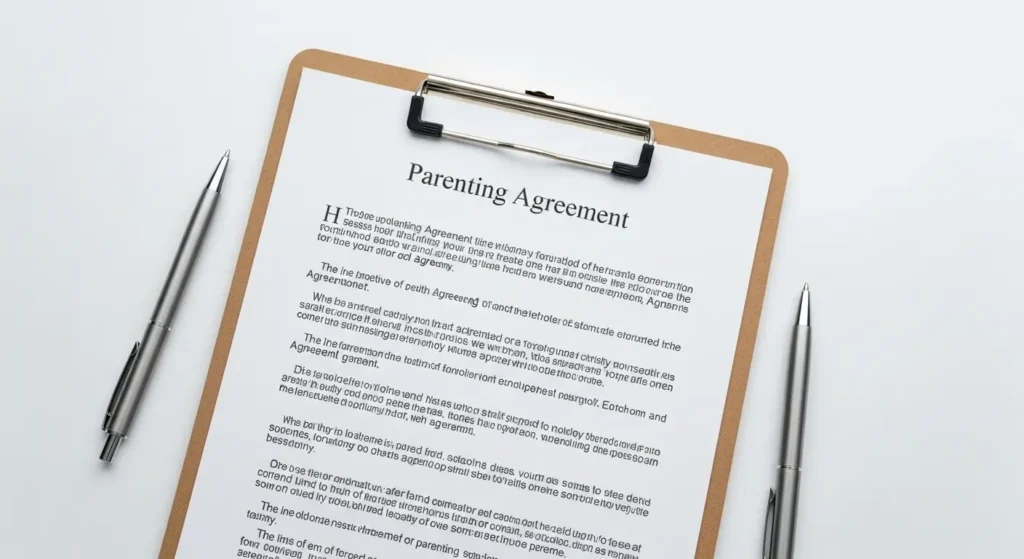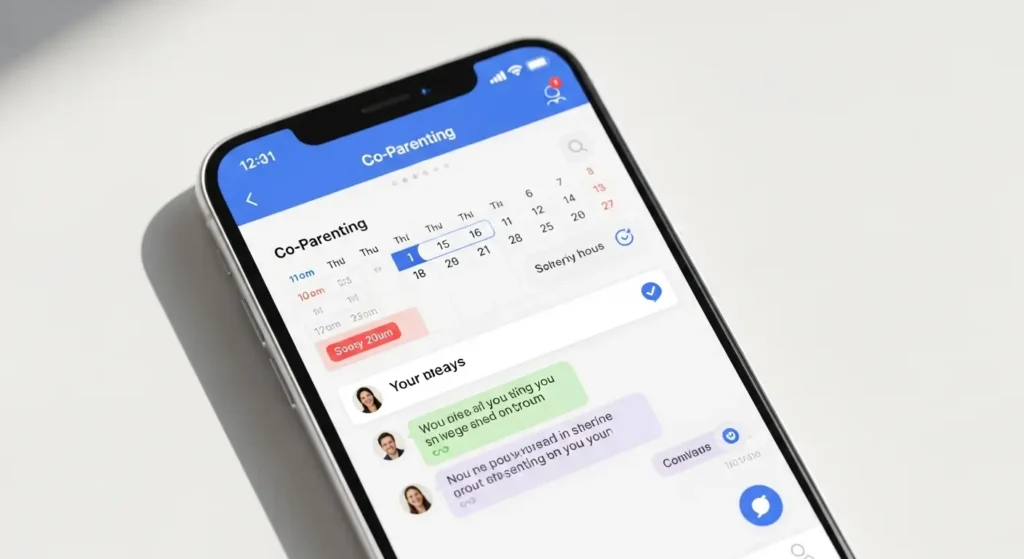
Better Communication Between High Conflict Parents: Parallel Parenting
Divorce or separation is never easy, especially when children are involved. For some parents, communication after a breakup is civil and cooperative. But for others, it can become tense, hostile, or downright toxic. If you find yourself in a high-conflict co-parenting relationship, you’re not alone, and you have options.
One of the most effective strategies for reducing conflict while still supporting your child’s well-being is a method known as parallel parenting. Unlike traditional co-parenting, parallel parenting limits direct communication between exes and allows each parent to focus on their individual relationship with the child. It can be a lifeline for families where constant disagreements threaten to undermine the children’s emotional health and stability. A divorce and separation attorney can help you put a workable plan in place.
What Is Parallel Parenting?
Parallel parenting is a structured approach designed for parents who struggle to communicate effectively or respectfully after separation. The goal is to minimize direct interaction, reduce conflict, and ensure both parents remain active in their child’s life without constant friction.
In a parallel parenting arrangement, each parent takes full responsibility for the child during their designated parenting time. Unlike co-parenting, which often involves joint decisions and frequent collaboration, parallel parenting separates parental duties and limits the need for ongoing dialogue.
Some key features of parallel parenting include:
- Minimal in-person or phone communication
- Written communication only (via text, email, or parenting apps)
- Clearly defined schedules and boundaries
- Each parent makes day-to-day decisions independently during their time
- Use of a parenting coordinator or mediator, when necessary
This approach is especially useful in cases involving ongoing arguments, emotional abuse, unresolved resentment, or differing parenting styles that regularly lead to disputes.
How Is Parallel Parenting Different from Co-Parenting?
Co-parenting relies heavily on collaboration and ongoing dialogue. Parents in a co-parenting relationship are expected to attend school events together, jointly make decisions about education and healthcare, and present a unified front to the child.
This model works well for amicable exes, but it can be a recipe for disaster in high-conflict situations.
Parallel parenting, on the other hand, prioritizes peace over partnership. Instead of forcing communication between two people who don’t get along, it creates distance. This space allows each parent to engage with their child without the stress of constant arguments with the other parent.
Where co-parenting emphasizes shared decision-making, parallel parenting emphasizes autonomy with boundaries. The emphasis is less on working together and more on working separately for the same goal—the well-being of the child.
Why Choose Parallel Parenting?

If communication between you and your ex tends to lead to shouting matches, passive-aggressive comments, or stonewalling, then continuing to co-parent in a traditional way may do more harm than good for both of you and for your child.
Here’s why many parents choose parallel parenting:
Reduces Conflict Exposure for Children
Children do best when they feel safe, loved, and free from adult disputes. Parallel parenting shields children from toxic exchanges and keeps their focus on their relationship with each parent rather than the conflict between them.
Protects Your Mental Health
Trying to co-parent with someone who constantly undermines or criticizes you can be emotionally exhausting. Parallel parenting limits those interactions, giving you room to breathe and recover from the stress of the breakup.
Encourages Consistency
With clearly outlined responsibilities and schedules, there’s less room for confusion or last-minute disagreements. A well-structured parallel parenting plan brings predictability to everyone’s lives.
Helps Both Parents Stay Involved
Parallel parenting allows both parents to remain active and engaged in their child’s life, even when they can’t get along. It promotes a sense of stability and continuity for the child, which is vital for their emotional development.
Setting Up a Parallel Parenting Plan
Parallel parenting works best when it’s implemented through a detailed parenting plan, either agreed on by both parties or ordered by a court. A comprehensive plan helps eliminate ambiguity and avoid disputes by laying out:
- Parenting time schedules (holidays, vacations, school breaks)
- Pick-up and drop-off logistics (including neutral exchange locations if needed)
- Communication methods (email, parenting app, written logs)
- Guidelines for decision-making (what can be decided independently vs. jointly)
- Conflict resolution methods (use of parenting coordinator, mediation clause)
- Restrictions on derogatory remarks or interference with each other’s time
Because the success of parallel parenting depends on clarity, it’s essential that your plan is specific, enforceable, and adapted to your unique family dynamics.
Communication Tips for Parallel Parents

Even though the goal is to reduce contact, some level of communication is still necessary, especially for emergencies, school issues, or medical concerns. Here are a few strategies that can help:
- Use Written Communication Only: Stick to emails, texts, or co-parenting apps like OurFamilyWizard, TalkingParents, or 2houses. These platforms document all exchanges and help avoid verbal confrontations.
- Keep it Businesslike: Treat your ex like a colleague. Be brief, informative, and respectful. Avoid emotional language.
- Focus on the Child: Always center your conversations on your child’s needs, not past grievances.
- Use Third Parties if Needed: When direct communication fails, a parenting coordinator, mediator, or family law lawyer can step in to help.
When to Consider Parallel Parenting
Parallel parenting isn’t just for people going through a rough patch. It’s often the best long-term solution for parents dealing with:
- History of domestic abuse or emotional manipulation
- Mental health issues that impair communication
- Narcissistic or controlling behavior
- Legal battles or restraining orders
- Deep-seated anger, bitterness, or trauma
- Differing parenting philosophies that constantly clash
If you’ve tried co-parenting and found it repeatedly unworkable, you may want to speak with a family law attorney about transitioning to a parallel parenting model.
How a Family Law Attorney Can Help
Putting a parallel parenting plan in place isn’t something you have to figure out on your own. A knowledgeable family law lawyer can help determine whether parallel parenting is appropriate for your situation, draft or revise your parenting plan to reflect the necessary terms, and represent you during mediation or custody hearings. They can also enforce court orders if the other parent violates the agreement and advocate for your rights and your child’s best interests in court. Having a legally enforceable plan in place can protect you from further conflict and give you the peace of mind you need to move forward.
Protect Your Peace—and Your Child’s Well-Being
High-conflict parenting situations don’t have to last forever. Parallel parenting offers a way forward—a way to reduce stress, improve communication boundaries, and ensure your child continues to have healthy, loving relationships with both parents.
If you’re struggling to co-parent peacefully and want a more structured, low-conflict solution, it may be time to consider parallel parenting. You don’t have to make this transition alone.
Contact a family law lawyer today to learn how you can put a workable, enforceable parenting plan in place that prioritizes your child’s needs—and your peace of mind.
- Income Disparity and Child Support in Illinois - January 15, 2026
- How Is Child Custody Determined in Illinois? - January 14, 2026
- How Do I Adjust Time Sharing to Accommodate New Circumstances? - January 13, 2026
